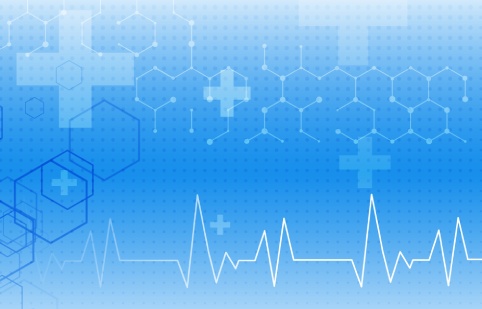-
The healthcare industry has grappled with inefficiencies, transparency issues, and data silos, resulting in suboptimal patient outcomes and escalating costs. Yet, the emergence of Web3 technology brings forth fresh opportunities for reshaping the healthcare landscape. Web3, or the decentralized web, harnesses the power of blockchain development services and decentralized protocols to facilitate secure, transparent, and peer-to-peer interactions, ultimately revolutionizing healthcare delivery, management, and accessibility.
This blog delves into Web3's implications in healthcare, examining its potential applications and the advantages it brings to patients, healthcare providers, and the industry as a whole.
Understanding Web3
Web3 represents the next stage of internet evolution, built upon decentralized and open-source blockchain technology. Unlike the conventional Web2, which concentrates data and control in the hands of centralized entities (such as tech giants and governments), Web3 aims to empower users by granting them complete ownership and control over their data and digital assets.
Key Aspects of Web3 in Healthcare
Decentralized Electronic Health Records (EHRs)
Web3 facilitates the establishment of a secure and interoperable system for electronic health records. Patients gain full control over their medical data, granting access to healthcare providers as needed. By utilizing blockchain, data integrity, tamper resistance, and audibility are ensured, enhancing data privacy and security.
Tokenized Healthcare Economy
Through Web3 technologies, healthcare providers, pharmaceutical companies, and researchers can tokenize healthcare services and products. Patients can use these tokens to access healthcare services or participate in medical research studies, creating incentives for active engagement in their healthcare journey.
Also, Read | AI and Blockchain for Technological Advancements in Healthcare
Medical Supply Chain Management
Web3's decentralized nature allows for improved supply chain management in healthcare. Pharmaceutical companies and medical equipment manufacturers can track and verify the authenticity of drugs and devices using blockchain, preventing the distribution of counterfeit products and ensuring patient safety.
Telemedicine and Remote Health Monitoring:
Web3 enables seamless peer-to-peer telemedicine platforms, allowing patients to directly connect with healthcare professionals without intermediaries. Additionally, the integration of Internet of Things (IoT) devices enables Web3 to facilitate remote health monitoring, securely collecting real-time patient data.
Health Insurance and Smart Contracts
Web3 technology can automate health insurance processes through smart contracts. These self-executing contracts ensure transparent and automated claim settlements, reducing administrative overhead and potential disputes between insurers and patients.
Also, Check | NFTs in Healthcare: Applications to Know
Advantages of Web3 in Healthcare
Enhanced Data Security and Privacy
Web3 employs decentralized networks and cryptographic principles to enhance the security of patient data. This ensures that sensitive health information is not controlled by a single entity, reducing the risk of data breaches and unauthorized access.
Improved Interoperability
Web3's interoperable nature enables seamless data sharing among different healthcare systems and providers. This leads to better-coordinated care, reduced redundancies, and improved patient outcomes.
Empowerment of Patients
Patients gain full ownership of their medical data, granting them greater control over their health information and decision-making. They can choose to share data for medical research or clinical trials while maintaining anonymity and giving informed consent.
You May Also Like | Emerging Use Cases of Blockchain in Healthcare in 2023
Trust and Transparency
Blockchain technology, a core component of Web3, ensures transparent and immutable healthcare transactions. This fosters trust among patients, providers, and stakeholders, promoting active participation in healthcare initiatives.
Incentivization and Token Economy
Web3 introduces a token economy where patients can receive rewards for participating in medical research or adhering to treatment plans. This incentivization encourages patient engagement and adherence to medical protocols, leading to better healthcare outcomes.
Challenges and Considerations
Regulatory Compliance
The integration of Web3 in healthcare demands meticulous attention to regulatory compliance, as the healthcare industry is subject to stringent regulations to safeguard patient safety and privacy.
Technical Scalability
Web3 technologies, including blockchain, currently confront scalability challenges, potentially constraining their rapid implementation in extensive healthcare applications. Nevertheless, ongoing research and development endeavors seek to tackle these limitations.
Education and Adoption
Achieving widespread adoption of Web3 in healthcare necessitates comprehensive education and awareness campaigns to assist stakeholders in comprehending its advantages and surmounting resistance to change.
Also, Visit | Tracking Counterfeit Drugs With Blockchain Healthcare Solutions
Conclusion
Web3 technology holds the promise of revolutionizing healthcare, reshaping the industry into a patient-centric, secure, and transparent ecosystem. Through the application of decentralized principles, Web3 can address critical challenges related to data management, interoperability, and patient engagement, leading to enhanced health outcomes and a more streamlined healthcare system. Interested in developing a healthcare solution with web3 technologies? Connect with our blockchain developers to get started.

Our Offices
INDIA
Emaar Digital Greens, Sector 61,
Gurugram, Haryana
122011.
Welldone Tech Park,
Sector 48, Sohna road,
Gurugram, Haryana
122018.













